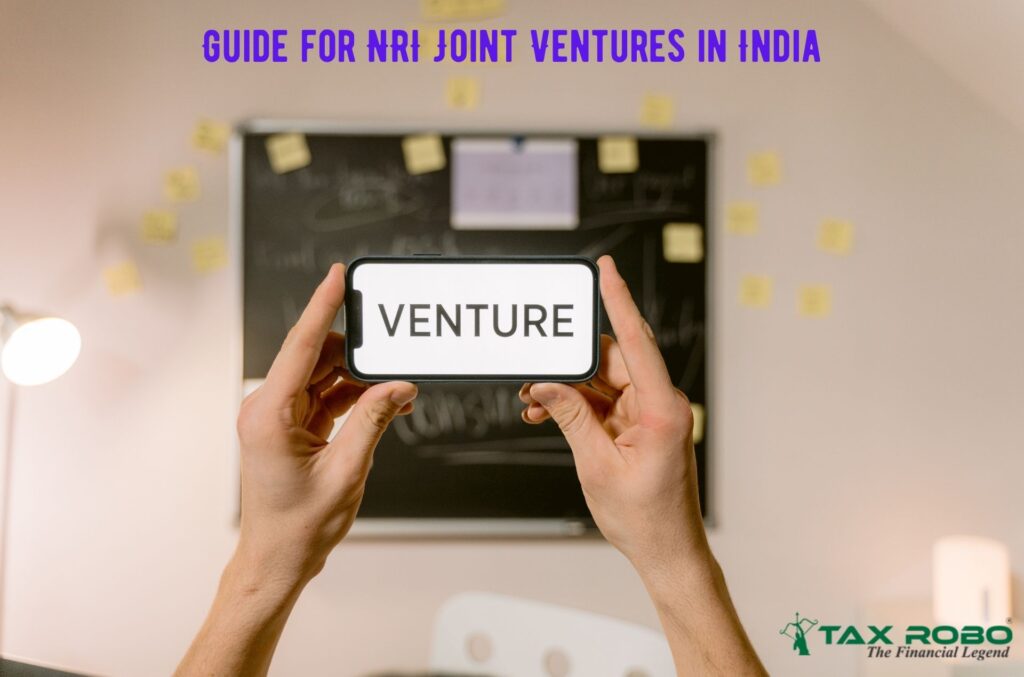India, your homeland, calls with a siren song of opportunity. As a Non-Resident Indian (NRI), you possess a unique advantage – a deep understanding of Indian culture coupled with global exposure and experience. India’s burgeoning economy, vast consumer market, and pro-business reforms are creating a fertile ground for entrepreneurship. If you’re looking to invest back home and build something meaningful, starting a business in India is a smart and rewarding venture.
However, navigating the legal and procedural pathways of company registration from abroad can seem daunting. Rest assured, the process, while requiring attention to detail, is far from insurmountable. This comprehensive guide is designed to simplify each step, empowering you to register your company in India with confidence and ease, transforming your entrepreneurial dream into a tangible reality.
1. Choosing Your Business Vehicle: Selecting the Right Entity for Long-Term Success
The first pivotal decision is selecting the right type of business entity. This choice will significantly impact your liability, fundraising capacity, operational flexibility, and tax implications. For NRIs venturing into the Indian market, three entity types stand out as the most practical and beneficial:
- Private Limited Company (PLC): The Gold Standard for Growth and Credibility
A Private Limited Company (Pvt Ltd) is arguably the most favored business structure for NRIs and foreign investors alike. Why? Because it offers a powerful combination of limited liability protection (shielding your personal assets from business debts) and enhanced credibility. This structure is recognized and respected by financial institutions, investors, and large corporations, making it ideal if you plan to:
- Seek funding from external investors: Pvt Ltd companies can easily raise capital through equity, attracting angel investors, venture capitalists, or even approaching banks for loans more readily.
- Scale your business operations: This structure is built for growth and expansion, facilitating future diversification, strategic partnerships, and even eventual public listing if desired.
- Build a robust and sustainable enterprise: The formal structure of a Pvt Ltd instills confidence in clients, partners, and employees, signaling long-term commitment and stability.
Think of a Pvt Ltd as the “corporate” structure, best suited for businesses with ambitions to grow significantly, require external investment, and operate at a substantial scale. If you envision a mid-to-large sized operation with a professional outlook, a Pvt Ltd company should be your primary consideration.
- Limited Liability Partnership (LLP): The Agile and Flexible Choice
A Limited Liability Partnership (LLP) provides a compelling alternative, blending the operational flexibility of a traditional partnership with the crucial benefit of limited liability. Imagine the ease of management and agreement-based structure of a partnership, but without the unlimited personal liability risk. This makes LLPs particularly attractive to:
- Smaller to medium-sized businesses: LLPs are excellent for consulting firms, service-based businesses, or ventures where operational agility and partner collaboration are paramount.
- Businesses with professional partners: Doctors, lawyers, architects, and other professionals often favor LLPs due to their flexible structure and limited liability protection against professional errors of other partners.
- Businesses requiring simpler compliance: While still requiring registration and compliance, LLPs generally have fewer regulatory burdens compared to Pvt Ltd companies, making them easier to manage from a compliance perspective, especially in the initial stages.
Consider an LLP if your business emphasizes partner collaboration, requires operational flexibility, and operates at a smaller to medium scale, while still prioritizing liability protection.
- Branch Office (BO) or Liaison Office (LO): Dip Your Toes Before Diving In
A Branch Office (BO) or Liaison Office (LO) offers a more preliminary approach. These are not separate legal entities but rather extensions of your existing foreign company in India. They are best suited if you intend to:
- Explore the Indian market and establish a presence: BOs and LOs are designed for market research, promotion, and liaison activities. They allow you to set foot in India, understand the market dynamics, and build relationships before committing to full-scale operations.
- Support your parent company’s Indian operations: BOs can engage in activities directly related to the business of the parent company (e.g., export-import, professional consulting services under specific RBI approvals), while LOs are strictly for liaison and representation.
- Have limited operational scope in India initially: BOs and LOs are restricted in their operational activities. They cannot engage in direct manufacturing or trading activities in most cases.
Think of BO/LO as a strategic initial step to understand the Indian market better, establish contacts, and pave the way for future full-fledged company incorporation. They are less about immediate profit generation and more about strategic market entry and preparation. Your Choice Matters: Carefully evaluate your business goals, long-term vision, risk appetite, and operational needs to select the entity that best aligns with your aspirations in India. This foundational decision will set the stage for a smoother registration process and a more strategically sound business venture.
2. NRI-Specific Compliance: Navigating the Legal Requirements with Clarity
As an NRI, you’re welcomed to invest and start a business in India. However, understanding the specific legal nuances pertinent to NRIs is crucial to ensure your business setup is fully compliant from day one. Don’t worry, the requirements are straightforward once you’re aware of them:
- Director Requirements: Ensuring Local Connection and Accountability
For both Private Limited Companies (PLC) and Limited Liability Partnerships (LLP), Indian company law stipulates that you need at least two directors. The key NRI-specific condition is that at least one director must be either an Indian citizen OR an Overseas Citizen of India (OCI) holder. The other director(s) can be NRIs.
- Overseas Citizen of India (OCI) Explained: An OCI card is granted to individuals of Indian origin who are citizens of other countries. Holding an OCI card provides numerous benefits, including visa-free travel to India and, relevant here, eligibility to be a director in an Indian company. If you or someone you know of Indian origin holds an OCI card, this person can fulfill the resident director requirement.
- The Resident Director Mandate: Ensuring Local Presence: Further, for both PLCs and LLPs, at least one director must be a “resident of India”. This is defined as someone who has stayed in India for a period of 182 days or more during the immediately preceding financial year. This residency requirement is designed to ensure that there is at least one person involved in the company’s management who is physically present and accountable within India. This resident director can be an Indian citizen, an OCI holder, or even a foreign national who meets the residency criteria. Importantly, this resident director can also be yourself, the NRI, if you plan to spend a significant portion of the year in India managing your business.
Practical Tip: If you, as an NRI, are not planning to be physically resident in India for 182 days or more annually, you will need to identify a resident Indian citizen or OCI holder to fulfill the resident director role. This could be a trusted family member, friend, or a professional director service.
- Shareholding Regulations: Embrace 100% Ownership (with Nuances)
Good news! Under the current Foreign Direct Investment (FDI) policy, NRIs are generally permitted to hold up to 100% of the shares in an Indian company across many sectors, operating under the automatic route. This means you don’t need prior approval from the Reserve Bank of India (RBI) for investment in most sectors.
- RBI and FEMA – The Regulatory Framework: While 100% NRI shareholding is generally allowed, it operates within the framework of the Foreign Exchange Management Act (FEMA), regulated by the Reserve Bank of India (RBI). FEMA is the legislation that governs foreign exchange transactions in India. RBI, as the central bank, issues guidelines and regulations under FEMA that pertain to foreign investments, including NRI investments.
- Sector-Specific Nuances: While the automatic route is broad, certain sensitive sectors (like defense, media, etc.) might still require prior government approval for FDI, regardless of whether the investor is an NRI or a foreign entity. It’s crucial to check sector-specific FDI policies for your intended area of business to ensure compliance.
Key Takeaway: For most businesses, NRIs can enjoy full ownership. Ensure all investments and fund inflows adhere to FEMA guidelines, which primarily involve reporting requirements to the RBI through authorized dealer banks. Consult with a financial advisor familiar with FEMA regulations to streamline your investment process.
3. Gather Your Documentation: Essential Papers for a Smooth Registration Journey
Preparing the necessary documents is a critical preparatory step. Having these ready in advance will significantly expedite your company registration. For NRIs, the document list is tailored to reflect your non-resident status:
- Passport Power: Your Primary Identity Proof
A notarized and apostilled (if applicable, depending on the country of notarization) copy of your passport is your primary identity document. This serves as official proof of your identity and nationality for Indian authorities. Ensure your passport is valid for a reasonable period.
- Address Proof in Your Country of Residence: Establishing Your Overseas Address
You’ll need to provide proof of your current residential address outside India. Acceptable documents include:
- Utility Bills: Electricity bill, gas bill, water bill, or fixed-line telephone bill (mobile phone bills are generally not accepted). Ensure the bill is recent (not older than 2-3 months) and in your name.
- Bank Statements: Statements from your overseas bank account, clearly showing your name and address. Again, ensure it’s recent.
- Driver’s License or Government-Issued ID: If these documents clearly display your current residential address, they may be acceptable.
Important Note: The address proof must be in your name and for your current overseas residential address. It should be attested by a notary public or a banker in your country of residence for added authenticity.
- Passport-Sized Photographs: For Official Records
You’ll need a few recent passport-sized photographs (typically 2-4 copies) of each director. These are standard for official documentation and form submissions.
- Digital Signature Certificate (DSC): Your Electronic Signature Key
A Digital Signature Certificate (DSC) is mandatory for digitally signing various online forms and documents required for company registration on the Ministry of Corporate Affairs (MCA) portal. You’ll need a Class 2 or Class 3 DSC.
- Obtaining a DSC as an NRI: You can obtain a DSC from authorized Certifying Authorities (CAs) in India. The process typically involves online application, document submission (passport copy, address proof, photograph), and video verification. Some CAs have processes specifically designed for NRIs. Research and choose a reputable CA that offers NRI-friendly DSC acquisition services. You may need to courier attested documents to the CA in India.
- Director Identification Number (DIN): Your Director’s Unique ID
A Director Identification Number (DIN) is a unique identification number for anyone who wants to be a director of a company in India. Applying for DIN is now integrated within the company incorporation process itself via the SPICe+ form (explained later). You no longer need to apply for DIN separately beforehand. You will provide your details and passport information in the SPICe+ form, and DIN will be allotted upon successful processing of your application.
- No Objection Certificate (NOC) – Only if Applicable:
A No Objection Certificate (NOC) is required only if an NRI director is already serving as a director in another company (Indian or foreign). In such cases, to avoid potential conflicts of interest or regulatory overlaps, you might need to obtain an NOC from the existing company where you hold a directorship. This is not a standard document for all NRI directors; it applies only in specific situations of pre-existing directorships.
Document Checklist for NRIs – At a Glance:
- Notarized and Apostilled Passport Copy
- Attested Proof of Overseas Residential Address (Utility Bill, Bank Statement)
- Passport-Sized Photographs
- Digital Signature Certificate (DSC)
- DIN Application (Integrated into Company Registration Process)
- No Objection Certificate (NOC) – If Applicable




Thank you, I have just been searching for information about this subject for ages and yours is the best I have discovered till now. But, what about the bottom line? Are you sure about the source?
When I originally commented I clicked the “Notify me when new comments are added” checkbox and now each time a comment is added I get several e-mails with the same comment. Is there any way you can remove people from that service? Many thanks!